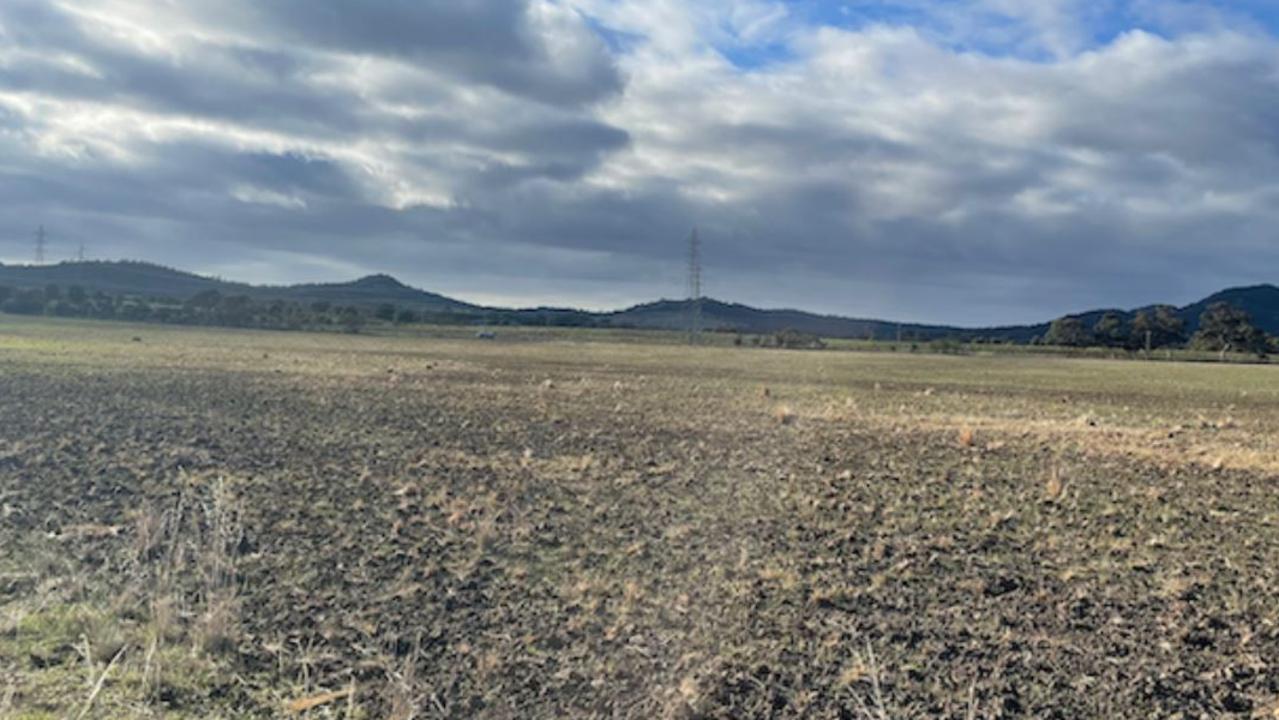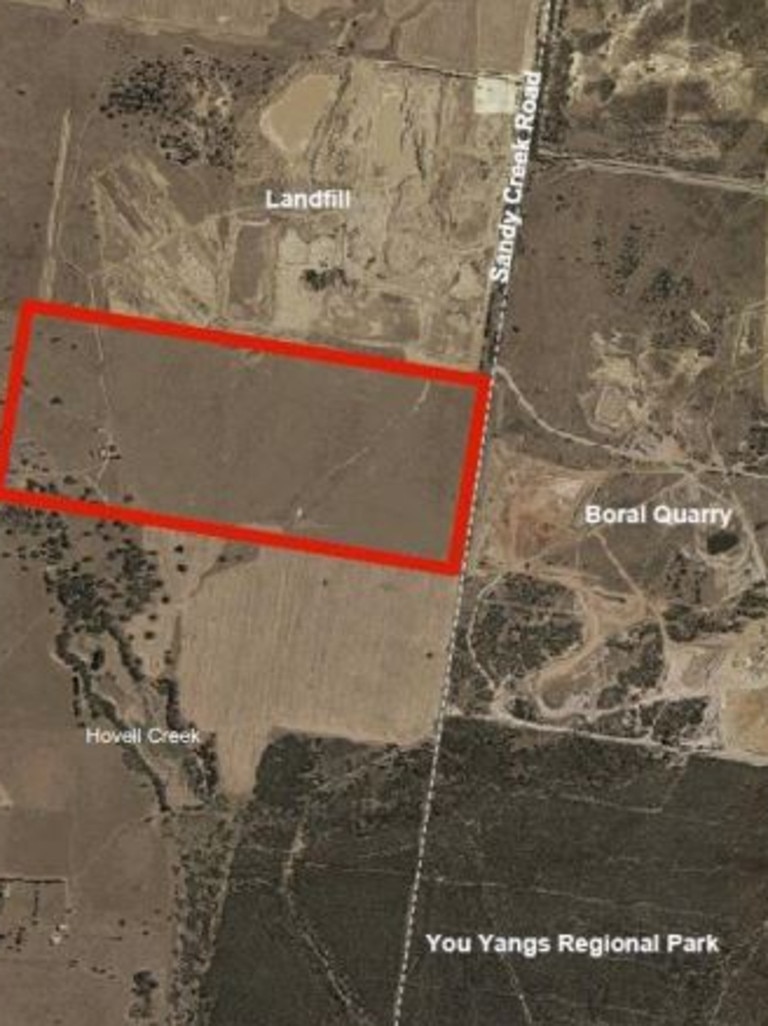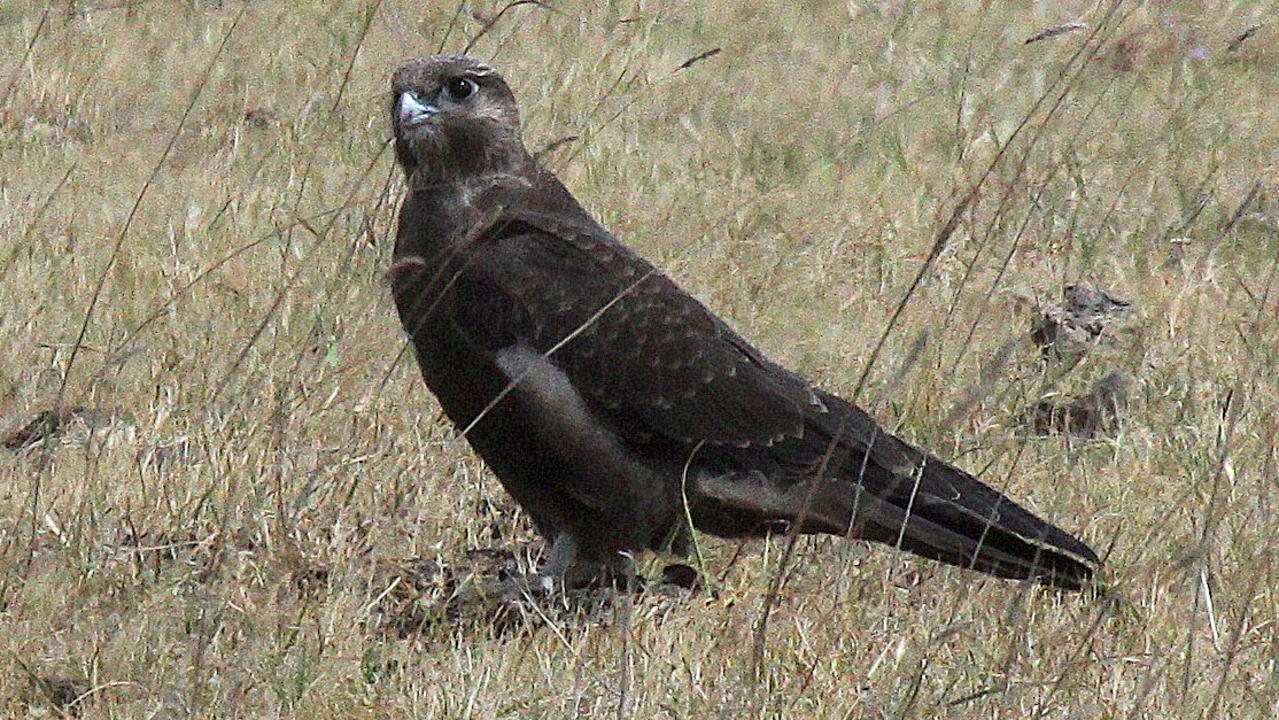ACEnergy’s plan for a big battery in Little River out for public consultation
A renewable energy hub could emerge just north of Geelong if two large-scale renewable energy projects eventuate.

Geelong
Don't miss out on the headlines from Geelong. Followed categories will be added to My News.
Plans for another large-scale renewable energy project north of Geelong have landed with the state government, this time in the form of a big battery that would help avoid blackouts during peak periods.
Melbourne-based ACEnergy has proposed a 350MW/700MWh battery energy storage system (BESS) for 405-455 Sandy Creek Rd in Little River.
The battery would connect directly to the site’s existing electricity network infrastructure.
The site of the project is 25km north of Geelong’s CBD and 45km southwest of Melbourne.
The You Yangs are less than 1km to the south and nearby is the proposed location for a massive solar farm would see the installation of 515,280 solar panels across 505ha.
Elgin Energy is behind that Little River-Ripley Rd project, which also includes a 500MW BESS.
The Department of Transport and Planning has put ACEnergy’s plans out for public consultation because an amendment to the Greater Geelong Planning Scheme is required.

The amendment, if approved, would allow for the development of the BESS, as well as the removal of native vegetation and subdivision of land.
Public consultation closes September 7 and a decision is expected by the end of the year.
ACEnergy expects to commence construction in the first half of next year and have the BESS operational by late 2026.
A BESS provides flexibility as it releases energy on demand, unlike many other forms of energy storage.
“They can respond faster than other energy storage or generation technologies, and help maintain grid stability by turning on and off in fractions of a second,” the Australian Renewable Energy Agency websites states.
“Due to the technology’s versatility and falling costs, the use of batteries for renewable energy is expected to increase over the coming years.”
The ACEnergy project would be spread across almost 18ha of a 93.3ha site and include 372 battery energy storage units and 124 medium voltage power stations.
A switching station and a control room also form part of the plans, according to planning documents.
“By storing renewable electricity during low demand times and discharging during high demand times, the BESS will increase security of supply and avoid blackouts on periods of very high demand,” the documents state.
“Another benefit to energy users is the reduction of wholesale energy prices during high demand periods.”
ACEnergy was contacted for comment.
The company secured the Little River land last year.
“By utilising existing transmission lines, we can minimise construction impacts and reduce the need for new infrastructure development,” its website states.
Walls up to 6m high would be installed where required to limit any noise impacts.
Earlier: Proposed solar farm north of Geelong to power 100k homes
Revised plans for a massive renewable energy project north of Geelong have landed with the state government, with changes made to ensure the nests of a threatened bird species are protected.
London-based Elgin Energy has lodged documents for its 330MW Barwon solar farm (BSF) with the Department of Transport and Planning.
In doing so, it withdrew an earlier application submitted in October 2022.
If approved, the project, located on Little River-Ripley Rd nearby the You Yangs and 30km north of Geelong’s CBD, would be one the largest renewable energy offerings in Victoria.
It would see the installation of 515,280 solar panels across 505ha – or 65 per cent of the overall site – and a 500MW battery energy storage system.
The facility would create up to 150 jobs during construction and, once operational, generate enough energy to power almost 100,000 homes.
The project would connect to existing transmission lines that pass through the southwest corner of the 735ha site that is mostly agricultural land presently.
It would go some way to helping the state government achieve its ambitious target of generating 95 per cent of the Victoria’s electricity needs from renewable energy by 2035, up from the current level of 38 per cent.
Just shy of 10ha of native vegetation would be removed at the BSF site, including 35 large trees.
“The solar energy facility has been designed to minimise impacts to native vegetation, waterways, Aboriginal cultural heritage, and to avoid any construction within easements,” Elgin states in its application.
Elgin and consultancy firm Urbis consulted with multiple stakeholders prior to submitting its revised plans.
The company has committed to retaining a group of 18 trees south of Little River-Ripley Rd that are home to Black Falcon nests.
The federal government has classified the species as critically endangered in Victoria and studies have found the greatest threat to its existence is habitat loss.

Elgin said the BSF was “shovel ready” and would be operational as early as 2026.
“The proposal will provide community benefit through its generation of energy to be placed back into the grid for the local supply, as well as offshoot benefits through the creation of employment opportunities for maintenance and management of the environment on the site,” the application states.
A 2.3m high chain mesh fence would be installed around the BSF site to deter theft and vandalism.
Elgin Energy was contacted for comment.
The company has been active in Australia for six years and is developing a pipeline of more than 2GW of projects across the eastern states.
Originally published as ACEnergy’s plan for a big battery in Little River out for public consultation







